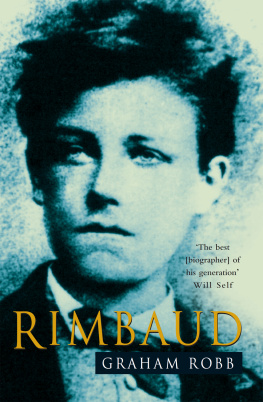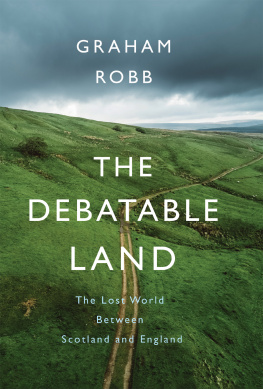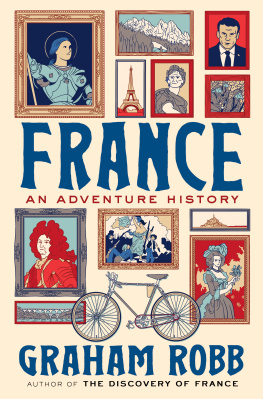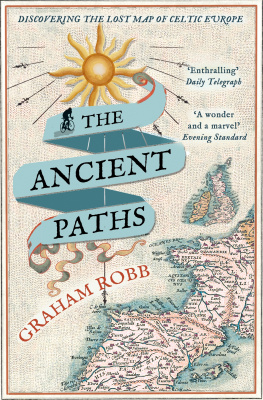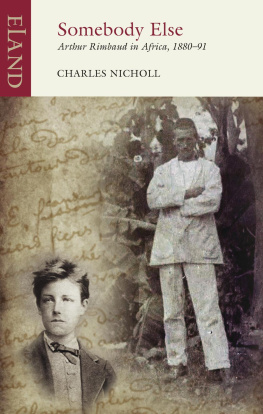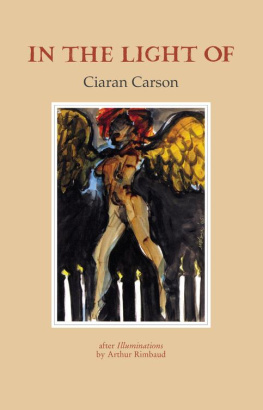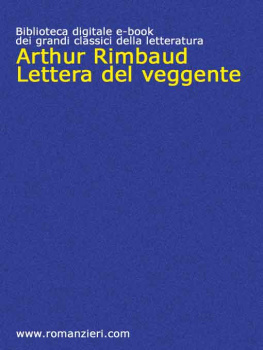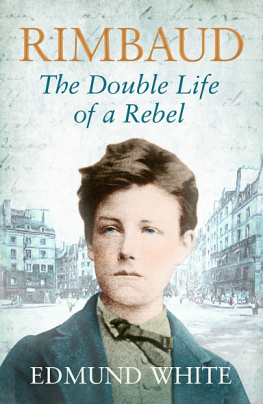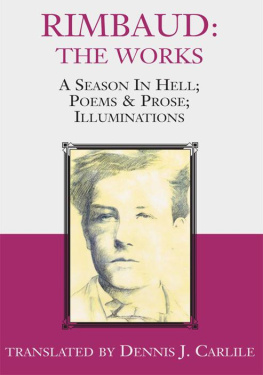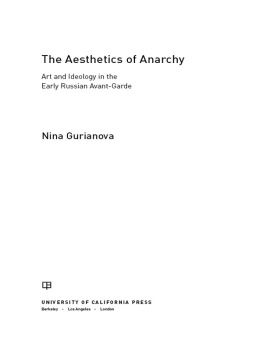RIMBAUD
Robb rescues his subject from the generations of romantics, academics and intellectual fashion-mongers who have recast him down the years in images to suit themselves. This is a wonderfully deadpan Rimbaldian version for the post-modern age
Hilary Spurling, Daily Telegraph
[Rimbaud] is as fascinating, funny and illuminating as Robbs previous lives of Balzac and Victor Hugo. He is one of the very best biographers working today
Mark Sanderson, Time Out
Graham Robbs Rimbaud demythologizes the subject while leaving quite intact the magic of the art
Julian Barnes, Observer, Books of the Year
Clearly undaunted, Graham Robb the author of acclaimed biographies of Balzac and Victor Hugo now goes the distance with this more dangerous, even demonic subject... Robb tells this coruscating and enigmatic life story with intelligence, compassion, and a healthy dose of scepticism. He lets Rimbaud breathe
Charles Nicholl, Literary Review
Graham Robb, whose biographies of Balzac in 1994 and Victor Hugo in 1997 are triumphs of scholarship, now produces the best biography of Rimbaud
Editors Choice, New York Times
At once affectionate and unfooled... it is Robbs happy achievement to allow Rimbaud to grow up
Alan Jenkins, Financial Times
An exemplary biography
Paul Bailey, Daily Telegraph, Books of the Year
The single best work to read about this haunting and haunted poet
Richard Howard, New York Times
Robb offers a lucid and engaging account of a truly extraordinary life. His book is sure to gain Rimbaud still more admirers while hopefully also prompting them to delve further into his incomparable and beguilingly beautiful poetry
Economist
Unfailingly good; a calm, sceptical eye turned on a turbulent life
Philip Hensher, Observer, Books of the Year
Graham Robb was born in Manchester in 1958 and is a former fellow of Exeter College, Oxford. He has published widely on French literature and history. His 2007 book The Discovery of France won both the Duff Cooper and Royal Society of Literature Ondaatje Prizes. For Parisians (2010) the City of Paris awarded him the Grande Mdaille de la Ville de Paris. His most recent book is The Ancient Paths: Discovering the Lost Map of Celtic Europe (2013). He lives on the EnglishScottish border.
Also by Graham Robb in Picador
BALZAC
VICTOR HUGO
STRANGERS
Homosexual Love in the Nineteenth Century
PARISIANS
An Adventure History of Paris
THE ANCIENT PATHS
Discovering the Lost Map of Celtic Europe
Introduction
Every being seemed to me to be entitled to several other lives. |
(Dlires II, Une Saison en Enfer) |
U NKNOWN BEYOND THE AVANT-GARDE at the time of his death, Arthur Rimbaud (18541891) has been one of the most destructive and liberating influences on twentieth-century culture. He was the first poet to devise a scientifically plausible method for changing the nature of existence, the first to live a homosexual adventure as a model for social change, and the first to repudiate the myths on which his reputation still depends.
Rimbauds abandonment of poetry in his early twenties has caused more lasting, widespread consternation than the break-up of the Beatles. Even in the mid-1880s, when the French Decadents were hailing him as a Messiah, he was already several reincarnations from his starting-point. He had travelled to thirteen different countries and lived as a factory worker, a tutor, a beggar, a docker, a mercenary, a sailor, an explorer, a trader, a gun-runner, a money-changer and, in the minds of some inhabitants of southern Abyssinia, a Muslim prophet.
Rimbaud is largely responsible for what we now think of as the rebel artist the poet of revolt, and the greatest of them all, said Albert Camus.Boat), the enigmatic Voyelles (Vowels) sonnet, Une Saison en Enfer (A Season in Hell), the prose Illuminations and some strangely unfamous masterpieces, like the Proustian Mmoire and the obscene, pre-Freudian parodies of the Album zutique.
In his posthumous career as Symbolist, Surrealist, Beat poet, student revolutionary, rock lyricist, gay pioneer and inspired drug-user, Rimbaud has been treated by four generations of avant-gardes as an emergency exit from the house of convention. All known literature, according to Paul Valry, is written in the language of common sense except Rimbauds.
It is ironic that the experiments Rimbaud referred to as his verbal alchemy have helped to establish the idea that literary texts should be studied in clinical isolation from the unprofessional muddle of a life. His most spectacular influence has been on writers, musicians and artists who considered his life an essential part of the work: Pablo Picasso, Andr Breton, Jean Cocteau, Allen Ginsberg, Bob Dylan and Jim Morrison, who is sometimes said to have faked his death in Paris and followed Rimbaud to Ethiopia.
Unlike so many privately respectable anti-heroes, Rimbaud led an exemplary life. The list of his known crimes is several times longer than the list of poems published by Rimbaud himself. Between the time when he first ran away to Paris (1870) and the last recorded sign of interest in his own poetry (1875), the longest texts in his Correspondance are the letter in which he described his plan for becoming a seer by means of a long, immense and rational derangement of all the senses, and his statements to the Brussels police after he was shot by his lover, the poet Paul Verlaine.
The first biographical text devoted to Rimbaud apart from adulatory school reports was written on that occasion by a police constable:
In morality and talent, this Raimbaud [sic], aged between 15 and 16, was and is a monster. He can construct poems like no one else, but his works are completely incomprehensible and repulsive.
Since then, opinions have been almost uniformly extreme:
An angelic mind that was certainly illuminated by heavenly light. P AUL C LAUDEL
A spirit of the highest rank in the body of a vicious and terrible child. J ACQUES R IVIRE
A veritable god of puberty. A NDR B RETON
The first poet of a civilization not yet born. R EN C HAR
A superior mental degenerate with the added complication, during the period of literary production, of toxic delirium. Dr E. Jacquemin-Parlier
Constitutional psychopath. D R J. H. L ACAMBRE
The first punk poet. The first guy who ever made a big womens liberation statement, saying that when women release themselves from the long servitude of men theyre really gonna gush. New rhythms, new poetries, new horrors, new beauties. P ATTI S MITH
As some of these quotations suggest, Rimbauds poetry is not just a powerful mental stimulant; it also provides a fertile medium for fantasy and delusion. The great demystifier of bourgeois literature and society has been smothered in myth. Even now, the vast confabulation of the Internet is spreading Rimbaud legends more rapidly than ever, attaching him to more recent vagrants and visionaries like Bruce Chatwin and Kurt Cobain.
The reverential tone was set immediately after Rimbauds death. Horrified to see her brother depicted in the newspapers as a smutty, homosexual terrorist, Isabelle Rimbaud devoted herself to the task of cleaning up his reputation: How likely is it, she wondered, that a boy aged between 15 and 16 could have been the evil genius of Verlaine, who was eleven years his senior? The hagiography by her husband, Paterne Berrichon, which he almost called

